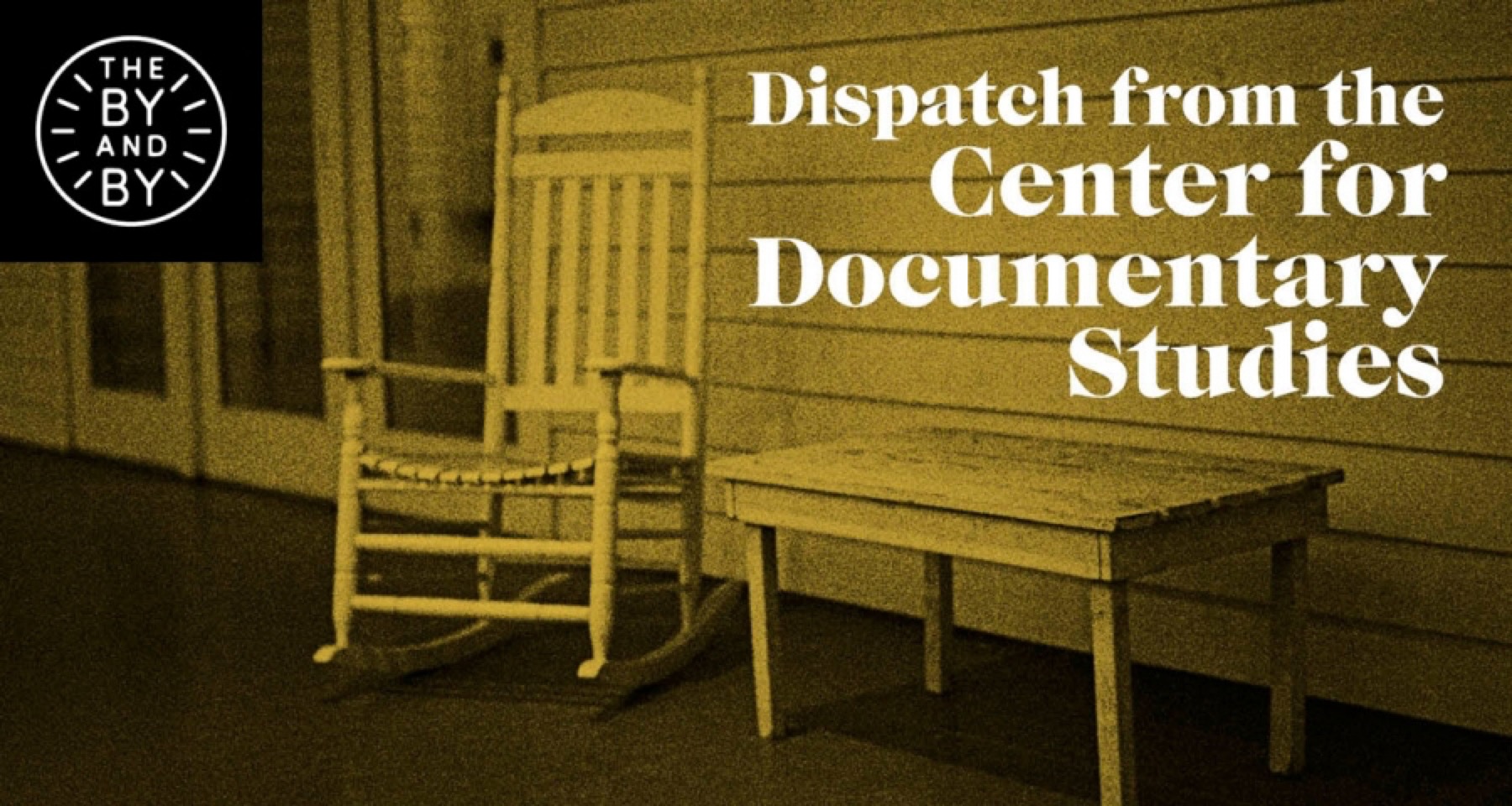
THE LAND
By John Biewen
A Dispatch from the Center for Documentary Studies at Duke University
CDS editor’s note: As Center for Documentary Studies (CDS) audio director John Biewen preps for the next season of Scene on Radio, the podcast is headed to 5 million downloads, episodes are being used in classrooms and independent discussion groups across the country, and media outlets—Los Angeles Review of Books, Columbia Journalism Review, Buzzfeed, among others—have taken note. Here, John sets the scene for the upcoming season.
On the CDS audio-documentary podcast, Scene on Radio, we’ve spent the last few years making deeply-researched, season-long series on themes fundamental to U.S. society and culture. Our 2017 season, Seeing White, a fourteen-part series exploring the history and meaning of whiteness, put our podcast on the map and earned a Peabody Award nomination. We followed in 2018 with MEN, a twelve-part dive into the past and present of male dominance – how patriarchy emerged and evolved through Western history, and how it works today. With their emphasis on history and leading-edge scholarship, these projects were designed to go far beneath the headlines and to be (relatively) timeless, but they turned out to be timely, too, thanks in particular to the election of Donald Trump and the #MeToo movement.
Our newest season, launching in January 2020, will explore another theme both evergreen and immediately urgent: democracy in America.
As the 2020 election approaches, the very survival of the United States as a democratic republic has returned as a topic of national conversation—Trumpian authoritarianism; voter suppression and gerrymandering; concerns about foreign intervention, election security, and the role of money in politics. Our series will touch on those concerns but will go much deeper, effectively retelling the story of the United States from its beginnings up to the present. Through field recordings and interviews with leading thinkers, we’ll tell under-told stories and explore key inflection points at which those who wielded power (including, sometimes, grassroots people power) managed to move the nation toward greater democracy or, just as frequently, less. Along the way, there’s a good chance that we’ll complicate, maybe upend, our listeners’ understanding of American history—what happened and why it happened, from the Revolution and the writing of the Constitution through Reconstruction, the New Deal, and our current moment.
We’ll examine, for example, the provocative observation by historian Woody Holton that the framers of the Constitution perceived a clear tension between political equality, about which many were skeptical, and, on the other hand, the money-making potential of American elites. “They really believed,” Holton told me, “that … if you move the needle towards more democracy, you're going to get less investment of capital, and if you move it towards less democracy, you're going to get more investment of capital.” Which of those two values did the framers prioritize? Holton’s take on that question can be surmised from the title of one of his best-known articles: “The Capitalist Constitution.”
Holton’s remark hints at a recurring question in the series: If you look at what America’s leaders have done, as opposed to the nation’s most noble stated ideals, have their actions demonstrated a stronger commitment to government of, by, and for the people, or to ensuring the potential to build wealth—for some, at least?
Our series title, The Land That Never Has Been Yet, is borrowed from the well-known Langston Hughes poem, “Let America Be America Again.” “O, let America be America again— / The land that never has been yet— / And yet must be….” Hughes was clearly conscious of the contradiction suggested by that “again,” on one hand, and “never has been” on the other.
The Land reunites the team that produced Seeing White: my “collaborating conversationalist” Chenjerai Kumanyika, journalism and media studies professor at Rutgers University, activist, and artist; and our editor, the public radio veteran Loretta Williams. Episodes will feature field recordings made in a number of states and a stellar lineup of scholars, including Eric Foner, Kidada Williams, Edward Baptist, Nikhil Pal Singh, and Wendy Brown, among many others.
I couldn’t be more excited about the work we’re doing on The Land, even as I share the genuine worry that many feel about the state of our republic. And yet. It’s clearly true that American democracy is in crisis today. But isn’t it fair to ask: When was it not?
Find out more about the Scene on Radio podcast at sceneonradio.org. Season 4, “The Land That Never Has Been Yet,” will launch in January 2020. All episodes from Seasons 1–3 are available on the website or on your favorite podcast app, including the Seeing White series (Season 2) and the MEN series (Season 3). Scene on Radio is a production of the Center for Documentary Studies at Duke University distributed by PRX.
In this short excerpt from Episode 3 of The Land ("The Cotton Empire"), historian Ed Baptist talks about one of the strategies used by enslavers to increase cotton production during the first half of the 19th century, a time when the American economy grew rapidly on the backs of enslaved black people in the Deep South. The clip features audio from the movie 12 Years a Slave. [Content warning: brutal violence is discussed.]
“Dispatches from the CDS” is part of our weekly story series, The By and By.
Enjoy this story? Subscribe to the Oxford American.


